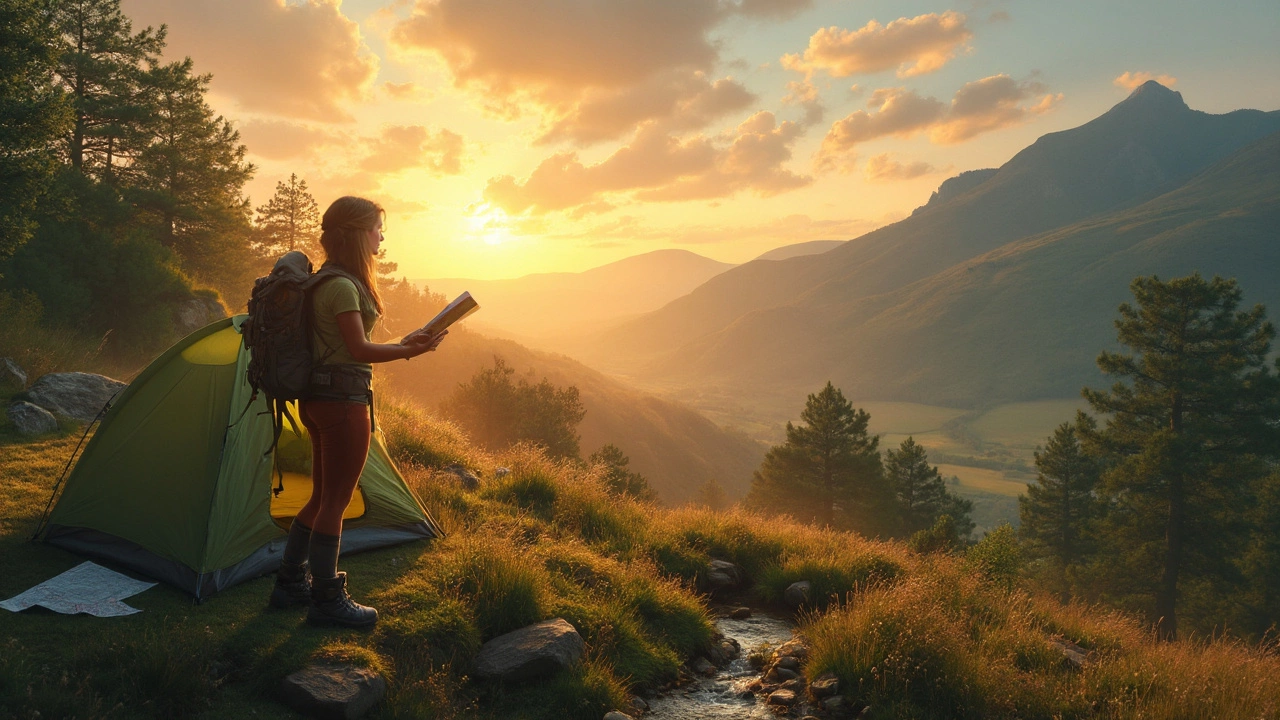Camping Alone: What You Need to Know Before You Go
If you love the idea of sleeping under the stars without anyone else around, solo camping can be a huge freedom boost. It feels like genuine escape, but it also means you’re the only one responsible for safety, rules, and comfort. Below are the most useful tips and legal basics to make your alone‑time in the wild both fun and hassle‑free.
Know the Rules – Where You Can Camp Alone Legally
In the UK, wild camping is mostly illegal unless you’re in Scotland or on land with explicit permission. For England and Wales, the safest bet is to use designated campsites, public parks that allow tents, or private land you’ve asked to use. Check local byelaws before you pitch – many coastal towns have strict beach‑camping rules, and some parks charge a small fee for overnight stays.
When you’re in Scotland, the Scottish Outdoor Access Code gives you the right to camp on most unenclosed land, but you must follow a few simple rules: stay away from occupied buildings, keep your fire small (or use a stove), and leave no trace. Even in Scotland, you can be asked to move if a landowner objects, so be ready to pack up quickly.
Safety First – How to Stay Secure When You’re On Your Own
Being the only person at a campsite means you need a solid safety plan. Start with a clear itinerary: tell a friend or family member where you’ll be, your expected return time, and how to reach you if something goes wrong. Carry a fully charged phone, a portable power bank, and a basic first‑aid kit.
Choose a spot with easy access to a road or path in case you need help quickly. Avoid low‑lying areas that could flood and steer clear of cliffs or steep drops. If you’re near a water source, keep your gear away from the edge and store food in airtight containers to keep wildlife out.
For personal safety, a lightweight personal alarm or a whistle can be a lifesaver. Many solo campers also bring a small satellite messenger for remote areas where mobile signal is weak.
Gear Checklist – Essentials for a Comfortable Solo Night
When you’re alone, the right gear can make or break your experience. Here’s a quick list:
- Tent: Choose a quick‑setup, weather‑proof model with a solid rainfly.
- Sleeping bag: Pick one rated for the lowest temperature you expect.
- Sleeping pad: Insulates you from the cold ground and adds comfort.
- Portable stove: Safer than an open fire and works in most campsites.
- Headlamp: Hands‑free light for night‑time tasks.
- Multi‑tool: Handy for repairs or food prep.
- Water filter or purification tablets: Guarantees safe drinking water.
- Trash bags: Pack out everything you bring in.
Keep your pack light but don’t skimp on layers. Weather in the UK can change fast, so a waterproof jacket and warm layers are non‑negotiable.
Planning Your Solo Trip – Make It Easy on Yourself
Start by picking a location that matches your experience level. New solo campers often enjoy well‑maintained campsites near a trail or lake because help is nearby if needed. If you want true wilderness, scout the area online first – read recent reviews, check for any recent closures, and look at satellite images to assess terrain.
Book a spot ahead of time whenever possible. Many popular sites allow online reservations, and a small fee can guarantee you a legal place to pitch. If you’re heading to a public park that allows overnight stays, arrive early to claim a good spot.
Finally, think about meals. Simple, no‑cook foods like energy bars, nuts, and dried fruit keep weight down. If you bring a stove, plan one‑pot meals that require minimal cleanup – less mess means less chance of forgetting something important.
Camping alone can feel like pure freedom, but it works best when you’re prepared and respect the rules. Follow these tips, stay aware of local laws, and you’ll enjoy a safe, unforgettable night under the stars.
Is Solo Camping Safe for Women in the UK?
Solo camping can be an empowering experience for women, offering a unique opportunity to connect with nature and oneself. There are numerous campsites across the UK that provide a safe and secure environment to explore alone. From choosing the right spot to staying connected with others, preparation is key to a successful solo camping trip. This article offers practical tips and insights to help women feel more secure and prepared for their solo adventure.
